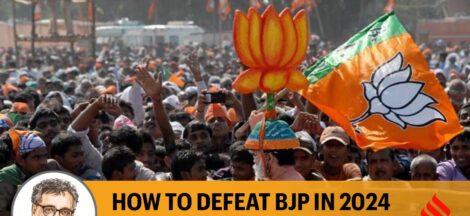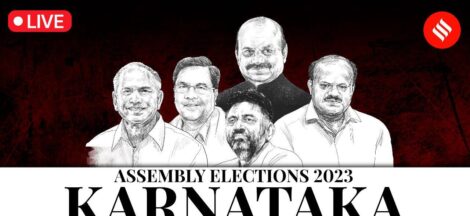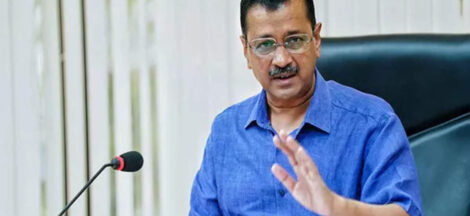By G. Srinivasan
Promising to replace trust in long-standing institutions such as commercial and central banks with trust in a new, fully decentralized system founded on the block chain and related distribution ledger technology (DLT), are the crypto-currencies emerging from obscurity to prominent position? This is a crucial question engaging the attention of not only businesses and consumers but also central banks and other authorities.
Responding to this new-fangled challenge ahead of its usual annual report release next week,, the Basle-based central bankers’ central bank, the Bank for International Settlements (BIS) has in a new Annual Economic Report (AER) hit the nail on the head by stating that crypto currencies’ very paradigm of generating trust circumscribes their potential to replace conventional money. In a special chapter on crypto-currencies released on Sunday evening at its headquarters, the BIS argued point blank that the decentralized technology underpinning private digital tokens is “no substitute for tried and trusted central banks”. It further noted that today’s crypto-currencies become more cumbersome to use as the number of users increases, in stark contrast to conventional money, which works better the more people use it and trust it! Head of Research and Economic Adviser, BIS, Hyun Song Shin pithily put it when he remarked that “Money has value because it has users. Without users, it would simply be a useless token. That’s true whether it is a piece of paper with a face on it or a digital token”.
Crypto-currencies consist of three elements. First they have a set of rules (the ‘protocol’) computer code specifying how participants could transact. Second, there is a ledger storing the history of transactions. And, third is a decentralized network of participants that update, store and read the ledger of transactions following the rules of the protocol. As the technological challenge in digital peer-to-peer exchange is the so-called ‘double-spending problem’, crypto-currencies overcome this glitch through decentralized record keeping by what is known as a distributed ledger. While mostly all crypto-currencies rely on a distributed ledger, they differ in terms of how the ledger is updated. One class is based on ‘permissioned’ DLT, another one promises to generate trust in a fully decentralized setting using ‘permissionless’ DLT and the latter was laid out for the case of Bitcoins. Blockchain-based permissionless crypto-currencies such as the one bitcoins have two sets of participants: ‘miners’ who act as bookkeepers and ‘users’ who want to transact in the crypto currency.
BIS said that even as crypto currencies such as Bitcoins promise to deliver not only a convenient payment means based on digital technology, but also a novel method of trust, delivering on this promise depends on a set of assumptions that honest miners control the vast majority of computing power; that users verify the history of all transactions and that the supply of currency is predetermined by a protocol. The key question is or the limitation in terms of efficiency is the enormous cost of generating decentralized trust. Translated into simple terms, the quest for decentralized trust has quickly become an environmental disaster as individual facilities operated by miners could exact enormous computing power equivalent to that of millions of personal computers! Another significant point with crypto- currencies is their unstable value. This arises from the absence of a central issuer with a remit to guarantee the currency’s stability.
Further compounding the unstable valuations is the speed at which new crypto-currencies—all tending to be very closely substitutable with one another—come into vogue. Finally, there is the fragile foundation of the trust in crypto-currencies. This relates to uncertainty about the finality of individual payments, as well as trust in the value of individual crypto-currencies.
In stout defence of its contention that the decentralized technology of crypto-currencies, however sophisticated, is a poor substitute for the solid institutional backing of money, the BIS enumerates the economic limitations embedded in the decentralized creation of trust which they entail. For the trust to be maintained, honest network participants need to control the vast majority of computing power, each and every user needs to verify the history of transactions and the supply of the crypto-currency needs to be predetermined by its protocol. Trust can vanish at any time because of the fragility of the decentralized consensus through which transactions are logged. Not only does this call into question the finality of individual payments, it also means that a crypto-currency can simply stop functioning, resulting in a complete loss of value. Besides, even if trust can be maintained, crypto-currency technology comes with poor efficiency and enormous energy use. Crypto currencies cannot scale with transaction demand, are prone to congestion and greatly fluctuate in value, the three major shortcomings to which they are susceptible.
Recounting the extant monetary and payment system, BIS said the tried, trusted and resilient way to provide or instill confidence in money in modern time is the independent central bank. Independent central banks have the world over largely achieved the goal of safeguarding society’s economic and political interest in a stable currency, the BIS contended adding that “with this setup, money can be accurately defined as an indispensable social convention backed by an accountable institution within the state that enjoys public trust.”
While electronic bank deposits are the main means of payment between ultimate users, central bank reserves are the means of payment between banks .In this two-tiered system, trust is generated through independent and accountable central banks, which back reserves through their asset holdings and operational rules. In turn, trust in bank deposit is generated through a host of means, including regulation, supervision and deposit insurance schemes, many eventually emanating from the state, the sovereign authority. In essence, BIS points out that thanks to the active involvement of central banks, “today’s diverse payment systems have achieved safety, cost-effectiveness, scalability and trust that a payment once made is final”.
Per contra, overall the decentralized crypto-currencies suffer from a range of shortcomings. The main inefficiencies emanate from the extreme degree of decentralization; creating the required trust in such a setting wastes huge amounts of computing power; decentralized storage of a transaction ledger is inefficient and the decentralized international payments involve multiple intermediaries, leading to high costs. However, more important use cases are likely to combine crypto payments with sophisticated self-executing codes and data permission systems. Some decentralized crypto currency protocols such as Ethereum already allow for smart contracts that self-execute the payment flows for derivatives. The efficacy of these products is limited by the low liquidity and intrinsic inefficiencies of permissionless crypto currencies. However, BIS argued, the underlying technology could be adopted by registered exchanges in permissioned protocols that use sovereign money as backing, simplifying settlement execution. The added value of the technology will probably derive from the simplification of administrative processes pertaining to complex financial transactions such as trade finance. In fine, the BIS has defended the mighty role of the central bank and mildly exposed the craze for the new digital currency by “looking beyond the hype”. (IPA Service)
The post BIS Says Crypto Currecny No Substitute For Hard Money appeared first on Newspack by India Press Agency.


